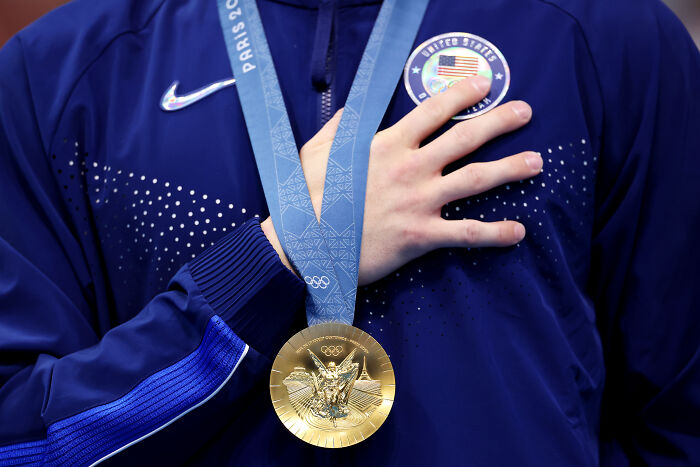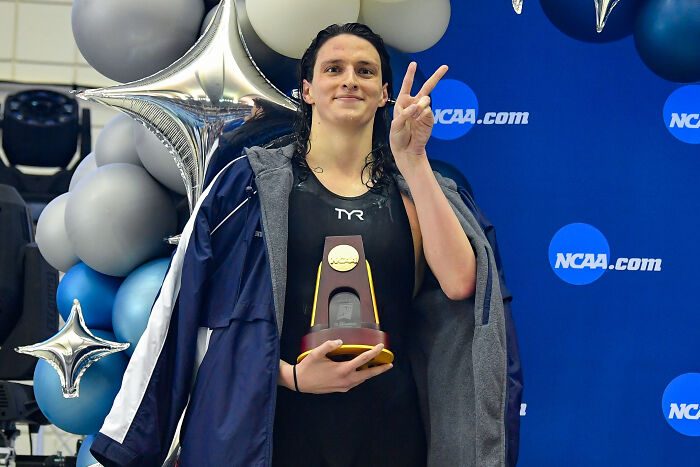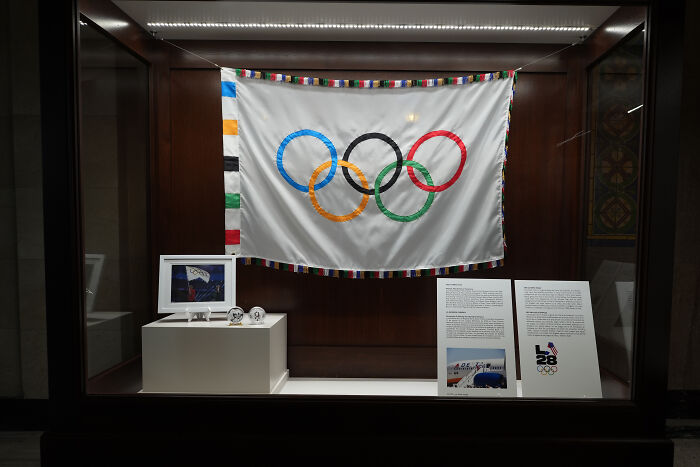The U.S. Olympic and Paralympic Committee (USOPC) banned transgender athletes from competing in women’s sports.
On Monday, the committee updated the Athlete Safety Policy on its website with a document dated June 18.
While the update was not publicized by the USOPC, it includes wording that indicates trans athletes will be banned from competing in women’s sports.
USOPC has banned trans athletes from women’s sports

“The USOPC will continue to collaborate with various stakeholders with oversight responsibilities, e.g., IOC, IPC, NGBs, to ensure that women have a fair and safe competition environment consistent with Executive Order 14201 and the Ted Stevens Olympic & Amateur Sports Act,” the document states.
U.S. President Donald Trump signed Executive Order 14201 in February after he came back into office. The order is titled ‘Keeping Men Out of Women’s Sports.’
The policy claims that allowing trans athletes to compete in women’s sports is “demeaning, unfair, and dangerous” and denies women and girls “the equal opportunity to participate and excel in competitive sports.”
Federal funding for educational institutions allowing trans athletes to compete in women’s sports was pulled in its wake as the policy shift targeted sports more broadly.

“It shall also be the policy of the United States to oppose male competitive participation in women’s sports more broadly, as a matter of safety, fairness, dignity, and truth,” the order added.
It is not clear if any Olympic athletes will be banned from competing in the 2028 Summer Olympics in Los Angeles, or how the policy will be enforced.
No athletes have won an Olympic medal while competing as an openly trans person in women’s sports.
The updated guidance was acknowledged by USOPC CEO Sarah Hirshland and USOPC President Gene Sykes in a letter to Team USA.
“As a federally chartered organization, we have an obligation to comply with federal expectations,” they said in a letter obtained by NBC News.

“The guidance we’ve received aligns with the Ted Stevens Act, reinforcing our mandated responsibility to promote athlete safety and competitive fairness”
In recent months, the debate surrounding trans athletes competing in women’s sports has intensified, with several U.S. government policies targeting the trans community.
At the start of July, the University of Pennsylvania (UPenn) announced it was stripping transgender athlete Lia Thomas of her swimming records.
It has also banned trans athletes from competing in female-only sports or using UPenn Athletics’ female changing facilities in the wake of Trump’s executive order.
Debate around trans athletes has intensified in recent months

UPenn’s decision came after an investigation ruled it had violated a sex discrimination rule by allowing Thomas to compete on the Women’s 2021-22 swimming and diving team.
It has now adopted biology-based definitions for the words ‘male’ and ‘female,’ consistent with the executive order stating there are only two biological sexes.
While critics say trans athletes competing in women’s sports gives them an advantage, a study by the Canadian Centre for Ethics in Sport found otherwise.
It said available evidence “indicates trans women who have undergone testosterone suppression have no clear biological advantages over cis women in elite sport.”
Sports already have established rules around an athlete’s testosterone levels, with anyone who tests too high ineligible to compete.

At the 2024 Paris Olympics, Jamaican-born transgender runner CeCe Telfer was ruled ineligible for the 400m hurdles event because she didn’t meet the required hormone criteria set for female athletes.
Advocacy group Independent Council on Women’s Sports (ICONS) welcomed the USOPC policy change and urged it to go further.
“We thank the Trump administration and the USOPC for taking this important step to preserve fairness and integrity in women’s sports,” it said.
“We also honor courageous athletes like Stephanie Turner, whose sacrifices and advocacy made this policy correction possible.”
Turner, a women’s fencer, decided to kneel in protest of a transgender competitor at a USA Fencing event earlier this year.
“The next critical step is for the USOPC to implement sex screening protocols. This will ensure that women are guaranteed equal, fair, and safe opportunities in athletic competition,” ICONS added.
“ICONS will not rest until every girl, at every level, in every sport has access to fair competition and privacy in locker rooms.”







